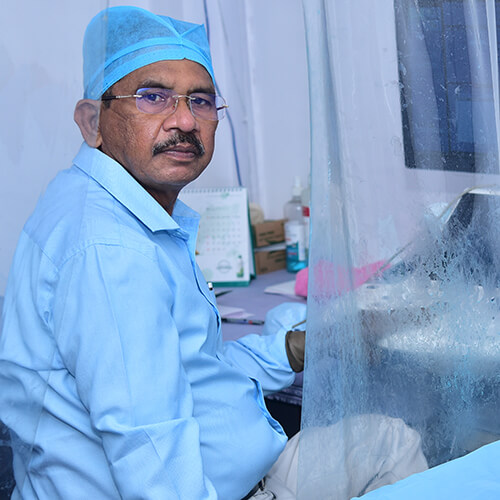

Beware of frauds: Online appointments are available only after confirmation with the hospital for any of our consultant doctors.

Radiology / Ultrasound is a branch of medical imaging that employs advanced technologies to visualize the internal structures of the body. Radiology encompasses various imaging modalities, including X-RAY, CT scans, and MRI, while Ultrasound uses sound waves for imaging. These diagnostic tools play a vital role in identifying and assessing medical conditions with precision.
Radiology / Ultrasound offers several benefits:
Radiology / Ultrasound is recommended for a range of diagnostic purposes, including:
We provide a wide range of ultrasound tests, including:
Used to analyse the growth and development of the fetus, especially between 7 to 10 weeks of pregnancy, producing images of the fetus within the womb.
Monitors the health and development of each fetus in a twin pregnancy.
Also known as Targeted Imaging for Fetal Anomalies, performed during the second trimester (18–22 weeks) to assess fetal development and identify abnormalities.
Critical for assessing fetal development in twin pregnancies, including the detection of shared placenta or amniotic sac complications and discordant growth.
Non-invasive imaging of the abdomen’s organs, such as the liver, kidneys, intestines, pancreas, gallbladder, and spleen, to diagnose various conditions.
Focused imaging of upper abdominal organs like the liver, gallbladder, pancreas, and kidneys.
Used to evaluate the pelvic cavity and reproductive organs for issues like appendicitis, ovarian cysts, or fibroids.
Non-invasive test measuring blood flow in vessels; used in pregnancy to assess blood flow to the maternal uterus and fetus.
High-resolution sonography that uses high-frequency waves to image tissues like lymph nodes and superficial organs.
Comprehensive ultrasound services for monitoring fetal development and ensuring a healthy pregnancy.
From chest X-RAYs to musculoskeletal imaging, our diagnostic radiology services cover a wide range of medical conditions.
Specialized ultrasound services for gynecological evaluations, ensuring a comprehensive approach to women's health.
Radiology is a broader term encompassing various imaging modalities like X-RAY, CT scans, and MRI. Ultrasound, on the other hand, specifically uses sound waves for imaging. Both aim to visualize internal structures for diagnostic purposes.
Yes, Radiology / Ultrasound procedures are generally safe. These diagnostic imaging techniques use non-invasive methods, with minimal risks and radiation exposure, ensuring patient safety.
The duration varies based on the type of procedure. Some exams, like X-RAYs, are quick and may take a few minutes, while more detailed studies, such as an MRI, may take longer. Your healthcare provider will provide specific details before the procedure.
Preparation varies depending on the type of procedure. For some Radiology studies, you may be asked to fast or avoid certain foods, while others may require contrast agents. Ultrasound procedures usually don't require specific preparations. Your healthcare provider will provide instructions based on the examination.
Yes, certain Radiology / Ultrasound procedures are considered safe during pregnancy. However, it's crucial to inform your healthcare provider about your pregnancy to ensure appropriate measures are taken to minimize any potential risks.